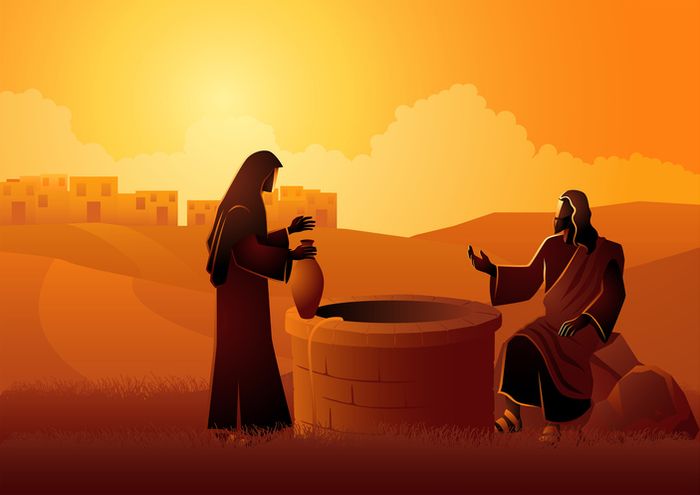Jacob's Well in Israel
Published September 29, 2024.

Jacob’s Well, a sacred site situated in the village of Balata, a suburb of Nablus, is steeped in biblical history and spiritual significance.
Jacob's Well is mentioned in both the Old and New Testaments. This ancient well is believed to have been dug by the patriarch Jacob over 4,000 years ago, making it a sacred landmark for Jews, Christians, and Muslims alike.
Jacob's Well serves as a physical reminder of Jacob’s life but also plays a key role in the story of Jesus, most notably in the Gospel of John, where Jesus speaks to the Samaritan woman at the well. Today, Jacob’s Well remains a place of pilgrimage, where visitors can connect with the deep spiritual and historical roots of the Holy Land.
Historical Information on Jacob's Well.
Jacob’s Well is a place steeped in ancient biblical history, with its origins reaching back over 4,000 years.
In this sacred spot near Shechem, Jacob purchased land, made his home, and provided his family with this vital water source. Over time, the well became a symbol of God’s faithfulness, a life-giving landmark tied to Jacob’s descendants and the twelve tribes of Israel.
Today, Jacob’s Well continues to draw pilgrims from around the globe, captivated by its profound spiritual significance. It serves as a bridge between the Old and New Testaments, offering a connection to the lives of the patriarchs and to the encounter between Jesus and the Samaritan woman.
Where is Jacob's Well located?
Jacob’s Well, is situated in the village of Balata, a suburb of Nablus, approximately 63 kilometers (39 miles) north of Jerusalem.
What is the significance of Jacob’s Well to the different religions
Jacob's Well holds significance in several religious traditions, reflecting its deep historical and spiritual roots.
Christianity
Biblical: In Christian tradition, Jacob's Well is most famously associated with Jesus’ encounter with the Samaritan woman. Described in John 4:1-42 where in this conversation Jesus offers "living water," symbolizes eternal life and highlights Jesus' mission to bring salvation to all people.
Spiritual: The well represents Jesus' role as the source of spiritual nourishment and salvation.
Judaism
Biblical: Jacob's Well is significant due to its association with the patriarch Jacob. According to tradition, Jacob purchased the land where the well is located and dug the well, making it a symbol of his commitment to his descendants and his role in the history of Israel.
Spiritual: The well represents the historical presence of the patriarchs and the deep connection between the land and the Jewish people.
Islam
Biblical: While Jacob's Well is not mentioned explicitly in the Quran, it is recognized in Islamic tradition as part of the broader narrative of the patriarchs shared with Judaism and Christianity. Islamic tradition acknowledges the importance of figures like Jacob (Yaqub) and the land associated with them.
Spiritual: The well is respected as part of the holy and historical landscape that intersects with the lives of significant prophetic figures in Islam, reflecting the shared heritage among the Abrahamic faiths.
Additional Holy Sites in the Holy Land, Israel.
Bethlehem:
Church of the Nativity: This revered church marks the traditional birthplace of Jesus. It is one of the oldest continuously operating churches in the world and an important pilgrimage destination.
Jerusalem:
Church of the Holy Sepulchre: Considered the most sacred Christian site, this church encompasses the locations of Jesus' crucifixion, burial, and resurrection.
Garden of Gethsemane: Situated at the foot of the Mount of Olives, this site is where Jesus prayed before His crucifixion.
Jericho:
Tel Jericho: The ancient city of Jericho is significant in the Bible as the site of the famous battle where the walls fell after Joshua’s army encircled the city.
Jordan River:
Baptismal Site (Qasr el Yahud): This location is traditionally identified as the place where Jesus was baptized by John the Baptist. It is a major site for Christian pilgrimages and baptisms.
Nazareth:
Basilica of the Annunciation: This church is built over the site where the Angel Gabriel is believed to have announced to the Virgin Mary that she would bear the Son of God.
St. Joseph’s Church: Situated nearby, this church commemorates the home of the Holy Family and the carpenter Joseph.
Sea of Galilee:
Capernaum: Known as Jesus' ministry base, the ancient ruins of Capernaum include the house of Peter and a synagogue where Jesus is believed to have taught.
Church of the Primacy of St. Peter: Located on the shores of the Sea of Galilee, this site commemorates Jesus’ post-resurrection appearance and His commissioning of Peter.
In conclusion; Exploring the Holy Land with Artza offers a journey that bridges the ancient with the present, allowing you to experience the profound spirituality and historical richness of this sacred region from your own home. By bringing the essence of places like Jacob’s Well and other significant sites into your life, Artza helps you connect deeply with the stories and traditions that have shaped faith for millennia.








